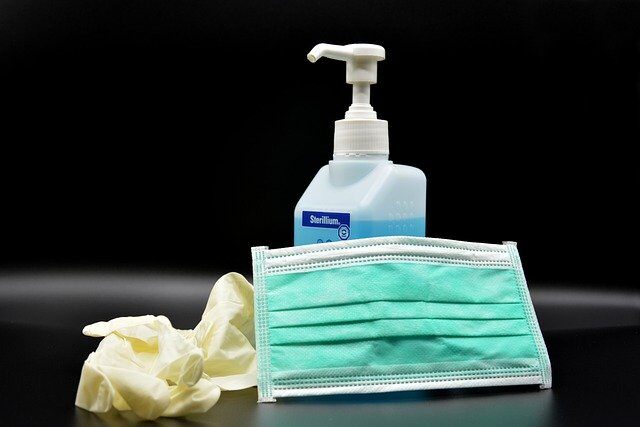How to Keep Fleet Drivers Safe During the COVID-19 Outbreak

The world-wide outbreak of the novel coronavirus COVID-19 has put people around the globe at risk for contracting the illness. Fleet drivers are no exception. However, while people try to stay at home and avoid unnecessary travel, fleet drivers are tasked with making sure essential deliveries get to residents, stores, markets, restaurants and more locations to keep businesses functioning and people healthy during this time of crisis. Because of this, it’s important for drivers to take extra precautions to ensure they are staying healthy and safe during the outbreak.
Take Precautions
One of the most important things fleet drivers can do is take precautions to limit their potential exposure to the virus, and potentially spread it to others. These can include:
- Stay home if they feel sick.
- Avoid people who are sick, especially with respiratory issues.
- Wash their hands frequently with soap and warm water for at least 20 seconds.
- Avoid unnecessarily touching their face.
- Cough or sneeze into a tissue or into the crease of their arm.
- Avoid touching frequently touched surfaces.
- Wipe down the interior of the vehicle – including the steering wheel, seatbelt, door handles and dashboard- at the beginning and end of their shift.
- Use hand sanitizer frequently. Keep sanitizer or disinfectant wipes in their vehicle.
- Use personal protective equipment like gloves or masks, if available.
- Disinfect any frequently used equipment before and after they use it.
- Wash their hands or use sanitizer after completing each job.
- Before entering a building, workplace or home, call ahead to see if anyone there is sick or has been exposed to the virus.
- Avoid shaking other people’s hands.
- Avoid having recipients use their pen or touch any of their devices. If they do, drivers should immediately disinfect them before touching the utensil or device again.
- Disinfect cards like their fuel card and check cards after each use.
- Follow federal safety guidelines, as well as ones set by the fleet operation.
Know the Symptoms
Another way for drivers to stay safe from the novel coronavirus is to be aware of the symptoms so they know when they could potentially be getting ill.
According to the Centers for Disease Control and Prevention, some symptoms to watch for can include:
- Sudden loss of smell
- Foods suddenly start to taste differently
- Fever
- Cough
- Shortness of breath
If drivers notice the following symptoms, they should seek immediate medical care:
- Trouble breathing
- Persistent pain or pressure in their chest
- Bluish coloring in their lips or face
- Confusion
- Trouble getting out of bed
The CDC states the symptoms may appear two to 14 days after exposure to the coronavirus. If a driver suspects he or she may have COVID-19, he or she should stay home and isolate him or herself according to federal guidelines to avoid spreading it to others – including their family.
Use Your Resources
In addition to taking precautions, fleet drivers should use the resources at their disposal to help keep them safe from the coronavirus. Some of these include:
- Telemedicine: Instead of risking exposure to ill people in a clinic or possibly infecting others, drivers can utilize telemedicine options to have virtual, online appointments with doctors 24 hours a day. This can help drivers determine if they need to be tested for COVID-19 or if they should seek in-person medical care.
- Truck stop clinics: Some truck stops offer medical services. If drivers are on the road and need medical assistance, then they can utilize the medical facilities some truck stops offer.
- Check-in system: Fleet operations should put a check-in system in place to have drivers relay their health status to fleet managers, colleagues and others at the operation to ensure the team is aware if anyone has COVID-19 or is experiencing symptoms.
Work with Your Fleet Operation
Fleet drivers should work with their operation to follow all safety guidelines put in place. Following these steps can help reduce risk around the operation and decrease the spread of the virus.
